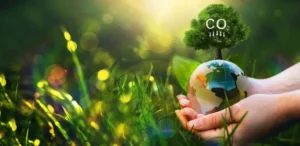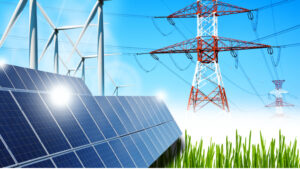Water is essential for life, but billions of people worldwide still struggle to access clean, safe drinking water. Rapid population growth, industrial pollution, climate change, and unsustainable agricultural practices are exacerbating water shortages and agricultural pollution. Traditional water management methods are struggling to keep up with growing demand and environmental challenges. We urgently need new, innovative approaches to safeguard the future of water. Cleantech uses modern science, engineering, and sustainability to more effectively address water challenges. From purification and conservation to smart distribution, clean water technology is increasingly important to global water challenges.
Sustainable Desalination Using Advanced Technology
Desalination technology has been around for decades. Traditional desalination methods are energy-intensive and expensive, making them unsuitable in many places. Recently, advances in cleantech have significantly improved the efficiency and sustainability of desalination. Nanotechnology, reverse osmosis membranes, and solar desalination plants are transforming the process. These advanced technologies reduce brine waste, energy consumption, and pollutants, making desalination more environmentally friendly and cost-effective. Saudi Arabia, Israel, and parts of California are investing more in these advanced technologies as freshwater resources become scarce. Advances in clean technology are helping desalination provide clean water to millions of people worldwide.
Smart Water Management Based on Digital Monitoring
Water systems worldwide are plagued by inefficiencies and leaks. Outdated infrastructure, poor monitoring, and manual oversight have led to massive water losses. Smart water management systems use sensors, data analytics, and artificial intelligence to monitor water flows, detect leaks, and improve water supply. Digital tools help water utilities and city planners troubleshoot pipe failures, reduce waste, and improve service in real time. Smart water meters in homes and businesses provide detailed data on water usage, encouraging conservation and responsible use. These technologies alleviate water stress and improve long-term sustainability by making water systems more transparent and responsive.
Water Purification Innovations for Community Safety
Water pollution is considered a health hazard in many countries. Agricultural, industrial, and urban waste contaminates water, making it unfit for drinking, cooking, and bathing. Clean technology has led to efficient and cost-effective water purification technologies. Portable water purifiers with activated carbon, ultraviolet, and ceramic membranes can remove bacteria, viruses, and harmful substances. Some solar systems are suitable for off-grid and rural areas. Community-based purification systems in schools, villages, and refugee camps provide safe drinking water to people at risk of waterborne infections. These inventions improve health and enable communities to manage water quality.
Wastewater Recycling and Recirculation Systems
Wastewater was once considered a waste product. Clean technology is turning wastewater into a valuable resource. Modern wastewater treatment methods can purify and reuse wastewater for irrigation, industrial activities, and drinking water. Membrane bioreactors, ozone treatment, and other new methods can purify water to high safety standards. Smart cities and eco-friendly buildings use closed-loop recirculation systems. These technologies can reduce pollutant emissions, lower freshwater demand, and improve water management in water-scarce areas. Wastewater recycling, supported by clean technologies, is becoming increasingly important for global water management.
Nature-Based Clean Tech Solutions for Water Protection
Cleantech encompasses both technological systems and nature-based solutions that aim to improve water quality and live in harmony with the environment. Urban wetlands, green roofs, and permeable pavements filter pollutants and manage runoff as nature does. These solutions can purify water, reduce runoff, recharge groundwater, and increase biodiversity. The strategy includes ecosystem health monitoring and supporting technologies for rivers, lakes, and wetlands. Green infrastructure and traditional water systems can help cities and towns withstand flooding, droughts, and pollution. Nature-based cleantech protects water resources and improves lives by creating greener, healthier places.
New Agricultural Water Technologies
Inefficient irrigation wastes water in agriculture, the world’s largest source of water. Cleantech, such as precision irrigation systems, soil moisture monitors, and automated irrigation systems, addresses this problem. These technologies enable farmers to conserve water without reducing crop yields. Drip irrigation reduces evaporation and runoff by directly watering plant roots. Monitoring crop health and water needs using satellite and drone technology can help make smarter decisions. Water-stressed regions need these agricultural technologies to ensure food security and conserve water. Clean technology in agriculture is essential for the sustainability of water resources and land.
Conclusion
Clean technology is increasingly important in solving water problems. From energy-efficient desalination to wastewater recycling and smart water management, these breakthroughs are changing the way we use water. Clean technology uses digital tools, nature-based solutions, and improved purification processes to provide communities with safe, reliable, and sustainable water. These approaches address water scarcity and provide future generations with resilience to climate change. Investment and research in clean technology increase the likelihood of solving global water challenges. Innovation helps us better conserve and preserve water, because it is life.
FAQs
1. Is it safe to reuse wastewater?
Yes, advanced purification technologies can purify wastewater to safe non-potable and potable standards. Many cities around the world use recycled water for irrigation, manufacturing, and drinking water.
2. What are smart water systems?
Smart water systems control water supply and distribution through sensors, data analytics, and automation. These systems optimize usage, reduce leaks, and increase efficiency.
3. What is the importance of clean technology in agriculture?
Precision irrigation, moisture sensors, and automation systems help farmers conserve water resources and promote sustainable food production.
4. Are clean water solutions expensive?
The cost of many technologies decreases over time, but some require significant investment. Early investments are often offset by long-term water waste and efficiency gains.
5. What are the benefits of clean water technologies for people?
Smart water meters can reduce energy bills, improve water quality, and improve the environment. Personal use of water-saving devices and home filtration systems also promotes clean technology.



